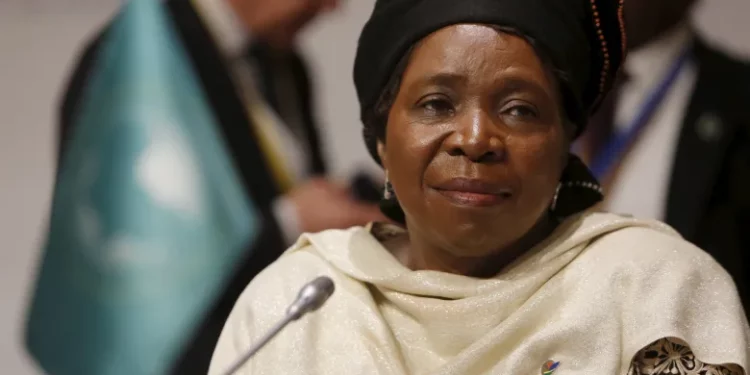APN Chairperson Urges African Leaders to Take Decisive Action to Realize Africa’s Economic Transformation
Dr. Nkosazana Dlamini Zuma, Chairperson of the Africa Prosperity Network (APN) Advisory Council, has urged African leaders to move beyond rhetoric and take concrete steps toward achieving the continent’s long-held aspirations for prosperity and unity.
Speaking at the official opening of the Africa Prosperity Dialogue 2025, she emphasized that the time for talk is over, and now is the moment for decisive action.
“Today, we focus on the principles of transformation as we deliberate on shaping the future of our continent. The theme for this year, ‘Delivering Africa’s Single Market through Infrastructure: Invest, Connect, and Integrate,’ is not just an idea but a call to action,” she stated.
Infrastructure as the Key to Economic Liberation
Dr. Dlamini Zuma stressed that Africa must view economic transformation as a generational mandate, not just a potential framework. She highlighted the need for investment in connectivity and integration, which she described as the foundation for unlocking Africa’s vast opportunities.
“Infrastructure is the lifeblood of any economy. It encompasses roads, railways, airways, and ports that connect our villages to our cities and, more importantly, link our countries together,” she noted.
She further underscored the importance of energy infrastructure, stating that energy powers industries, drives economic growth, and strengthens Africa’s self-sufficiency.
Maximizing Africa’s Resources for Sustainable Growth
Dr. Dlamini Zuma also called for an end to Africa’s reliance on raw material exports, urging the continent to process its minerals and develop its ocean economy.
“Africa cannot afford to simply export raw materials. We must unlock the potential of our ocean economy and manufacture the ships that will propel us forward.
“We must stop exporting unprocessed minerals and begin benefiting from the full value of our resources. This will make us price-setters, not price-takers. Beneficiating our minerals means that the wealth generated will remain within Africa, providing jobs and fostering economic growth,” she added.
Her remarks reinforce a growing consensus among African policymakers and business leaders that infrastructure, industrialization, and value addition are critical for Africa to fully realize the benefits of the African Continental Free Trade Area (AfCFTA) and establish itself as a global economic force.








